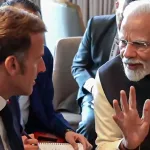Goa, July 21: Union Minister of State (Independent Charge) Science & Technology; MoS PMO, Personnel, Public Grievances, Pensions, Atomic Energy and Space, Dr Jitendra Singh on Friday urged the Indian diaspora to engage with the country.
Addressing the International Ministerial meeting of Joint 8th Mission Innovation Ministerial (MI-8) and 14th Clean Energy Ministerial (CEM-14) here, which was attended by delegates from about 30 countries from across the world, the minister said, “The Vaishvik Bhartiya Vaigyanik (VAIBHAV) Fellowship programme, introduced recently by Prime Minister Narendra Modi is a step in this direction. The fellowship would be awarded to outstanding scientists/technologists of Indian origin (NRI/OCI/PIO) who are engaged in research activities in their respective countries. The 75 selected fellows would be invited to work in 18 identified knowledge verticals including quantum technology, energy and material sciences among others.”
Touching upon global concerns, Dr Jitendra said this decade must see major innovation efforts for new technologies to be in the market to meet various climate goals. He underlined that the world today is more interconnected and interdependent than ever before and to create resilience, there should be more collaborations among countries to develop universal solutions that can be adapted to large sets of countries to make them affordable.
Dr Singh said the Mission Innovation (MI) and International Solar Alliance spearheaded by Prime Minister Narendra Modi was announced at COP21 in 2015, as world leaders came together in Paris to commit the ambitious efforts to combat climate change.
He informed the delegates that Mission Innovation is a term coined by India’s Prime Minister and the United Nations has recognized him for his Policy Leadership and pioneering work in championing and promoting new levels of cooperation on environmental action and clean energy initiatives and conferred on him Champions of Earth Award 2018.
Dr Jitendra Singh told the delegates that Prime Minister Modi’s attention to Clean energy is continuously reflected in his vision, outlined in the form of Panchamrit during COP26 and India’s targets toward climate action like reaching a non-fossil fuel energy capacity of 500 GW by 2030; fulfilling 50 percent energy requirements via renewable energy by 2030; reducing CO2 emissions by 1 billion tons by 2030; reducing carbon intensity below 45 percent by 2030; to pave the way for achieving a net-zero emissions target by 2070.
The union minister said India is celebrating 75 years of Independence and in this special moment (Amritkal), hosting of Annual Ministerial meeting of MI, CEM and G20 Energy Ministerial at the same location will be pivotal and a step forward to reach our ambitious clean energy commitments into action while ensuring energy security and accessibility.
He concluded by saying that achieving a cleaner and healthier future requires the unwavering focus of all governments, businesses, investors, and citizens. “We all must not lose sight of the need to continue the R&D cycle and focus on the next set of solutions,” he said.





